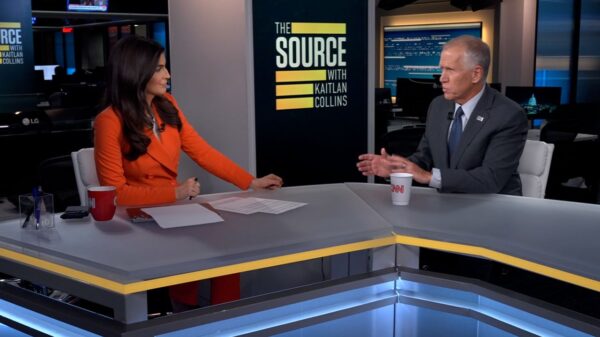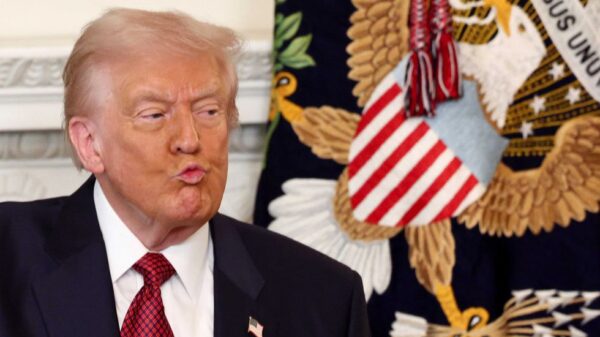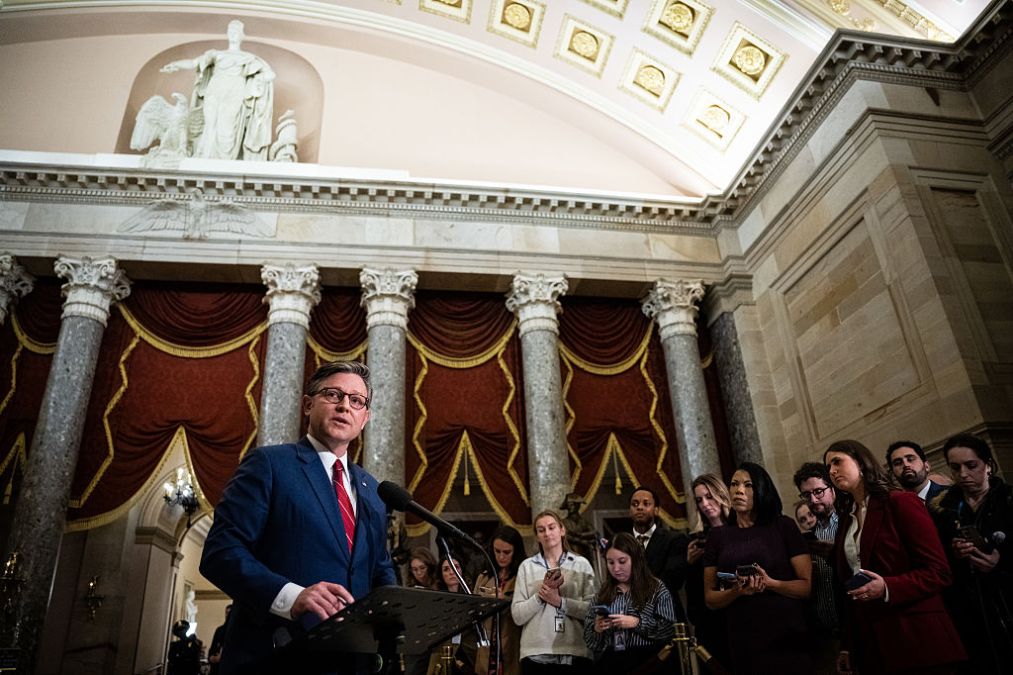URGENT UPDATE: The longest government shutdown in U.S. history, lasting 43 days, has officially ended as of Wednesday, November 15, 2023. This dramatic turn of events follows a contentious standoff between Democrats and Republicans, ultimately leading to a government reopening that many Democrats view as a significant setback.
The bill to reopen the government passed the House with a close 222-209 vote, thanks to the support of six House Democrats who broke ranks with their party. This unexpected alignment with the Republican majority allowed the bill to reach President Donald Trump, who swiftly signed it into law, marking a notable triumph for the GOP amidst ongoing political turmoil.
Despite the reopening, critics are voicing concerns over the lack of assurances regarding the extension of crucial Obamacare tax credits. Earlier this week, Senate Majority Leader John Thune promised a vote on the subsidies in December, but the outlook remains grim, as a recent Senate vote failed to extend these vital health care provisions.
Among the six Democrats who sided with Republicans are:
1. **Rep. Henry Cuellar (Texas)** – Cuellar cited the need to restore critical programs like the Supplemental Nutrition Assistance Program (SNAP), expressing concern for border communities relying on federal support.
2. **Rep. Donald G. Davis (N.C.)** – Davis switched his initial opposition to support the bill, citing the daily suffering of families in his district as a primary reason for his vote.
3. **Rep. Jared F. Golden (Maine)** – Golden, critical of both parties, emphasized the importance of reopening the government to provide essential services while still advocating for healthcare premium extensions.
4. **Rep. Adam Gray (California)** – In an opinion piece, Gray argued against holding families hostage during the negotiations, highlighting the 47,000 residents in his district affected by delayed SNAP payments.
5. **Rep. Marie Gluesenkamp Perez (Washington)** – Perez criticized the shutdown’s impact on Americans and urged Congress to prioritize bipartisan efforts to address healthcare costs.
6. **Rep. Thomas Suozzi (New York)** – Suozzi expressed concerns over air travel disruptions caused by the shutdown and emphasized the need for a bipartisan agreement on extending Obamacare tax credits.
This breaking event has prompted a strong response from party leaders. House Minority Leader Hakeem Jeffries reaffirmed the Democratic position, stating that the Republican funding bill failed to address the ongoing cost of living crisis or extend the Affordable Care Act tax credits.
As the situation unfolds, Senate Minority Leader Chuck Schumer has called for clarity on the Republican healthcare plan moving forward, questioning the commitment to support struggling families. “We need to know what the next steps are,” Schumer stated, directing his inquiry to Speaker Johnson.
The implications of this bipartisan vote underscore a critical moment in U.S. politics as the government reopens, but the debate over essential healthcare provisions continues. With the December vote looming, all eyes will be on Congress to see if they can secure the necessary support for extending these crucial subsidies.
Stay tuned for further updates as this story develops, and share your thoughts on how this government reopening impacts you and your community.





































































